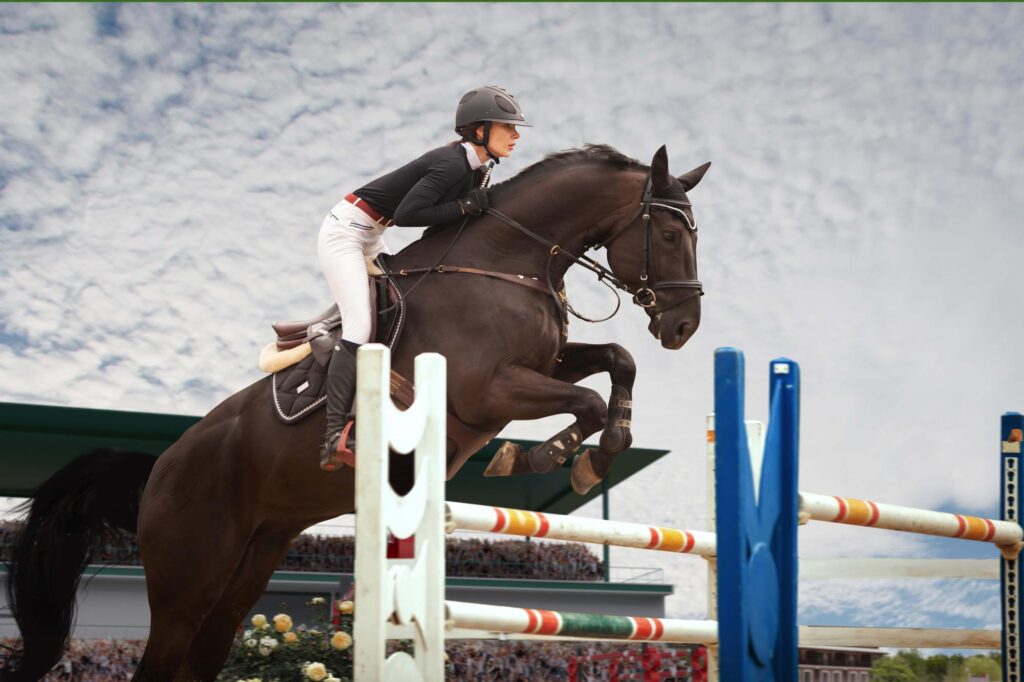Over the years, many books have been written about finding and choosing the correct filly or colt to bet on. It’s not easy to pick winners in horse races. But we do it, and we do it every day on our free horse racing tips page. How do you make money at horse races? Check out our beginner guide on how to win at horse racing to get started!
Don’t just stick with your favorite.
Horse racing is well-known for being hard to predict. The favorite only wins about 30% of the time, so if you went to an event and put all your money on the choices, you’d probably lose money.
The house always wins, so the deception isn’t to select the horse most likely to win but the one that offers you the most money. So, to get a good deal, you need to know what you want and do your research. People say knowledge is power, so the more research you do, the more you’ll enjoy it.
Understanding horse racing terms
Like every other sport in the world, Horse Racing has its own set of terms and phrases that you need to know. Learning these phrases is essential, so look at our Glossary in the Guides section, where we explain all the actual words you need to know!
Find out about your horses.
- Easy Winners from the Last Time Out: Horses in good shape can often win two to three races. It’s always a good idea to look for easy winners from the last race that look like they could win again.
- A good number of votes: If you can find a horse that did its best in its last race, you might be onto something.
- Comments about race: this information can be beneficial. Search online for horses that have been said to have “ran on well” or “quickened,” and you’ll find a filly or colt in good shape.
- Change of class: Trainers can put weaker horses in “higher” class races hoping that something good will happen. So, if you’re watching a runner with a good record in recent races, check to see how good the other runners were. Also, a horse moving down a class might be worth a look.
- The competition: the other horses in the race will influence how the race is conducted and your horse’s chances of winning. If a few front-running horses like to get off to a quick start, it’s unlikely that a horse from the back of the pack will be able to keep up.
- Bouncing back: It’s easy to focus on horses that did well last time out and placed or won, but if you want the vast prices, the trick is to try to spot where a horse may have run poorly but be prepared to run a big rush, either because of a change in conditions or because he’s better for some inferior runs behind a break.
Know your surfaces
Different horses run better on other surfaces, like a tennis player might prefer a clay court to grass, or a fast, skilled winger might not like it on a wet Tuesday night in Stoke. Dry courses, called firm or good to firm, have the fastest speeds and are best for horses with less power.
At the same time, runners who hit the ground hard are much more likely to like the slightly softer turf and get more sprinters’ power from captivating the bed. So, if you want to bet on a horse, you should look at the track it will be running on. Especially on the deeper soil, a horse’s past performance on the surface can be critical. Don’t back your horses without finding out which characters they like best!
Learn about your trainers
The trainer of the horse you bet on is just as essential as the horse itself. According to our blog about betting statistics, Nicky Henderson wins a lot at Newbury, while Donald McCain does well at Bangor. On different tracks, trainers will prefer various records.
Some will be better at getting runners ready for specific courses, and those who have already won at a track will know how to do it again. As a general rule, newbies can tell the most influential trainers on a path because they are likely to have more than one horse in a race. All good tipping guidelines will show a trainer’s record at a course and over the past few months.
The more you watch the numbers, the more you’ll find. You might find that one trainer chooses the same race every year to show off their very talented two-year-old. On the other hand, a bad record at a particular track tells you who not to back. For example, Saaed Bin Suroor hasn’t done well at Ascot, so he might not be worth the money.
Get to know the jockey.
Jockeys also know much about betting and can help you determine who will win. Just like some trainers are known for certain tracks, many jockeys have their favorite places to ride. In recent years, Ruby Walsh has been the best jockey at Cheltenham many times, while Ryan Moore is the one to beat at Ascot.
It works both ways: some skills will naturally fit some courses, and trainers will likely pair the best riders with the most vital horses. Learning and understanding the different combinations of jockeys and trainers is essential. Trainers sometimes have more than one horse in the race. Knowing who the stable jockey is, you can figure out which mare in the race is the trainer’s best hope.
Learn what a confident horse looks like.
You can’t do this while watching the racing events on ITV Racing, but if you’re at a live event, it can be helpful to protect your horses before the race to see how they react. For example, a calm, sure-footed runner with a brindle coat will often do much better than a nervous, twitchy horse that looks like it’s using a significant amount of energy in the paddock.




